Login
Signup
5 Social And Emotional Learning Principles In The Edumais Classroom
5 social and emotional learning principles in the EduMais classroom
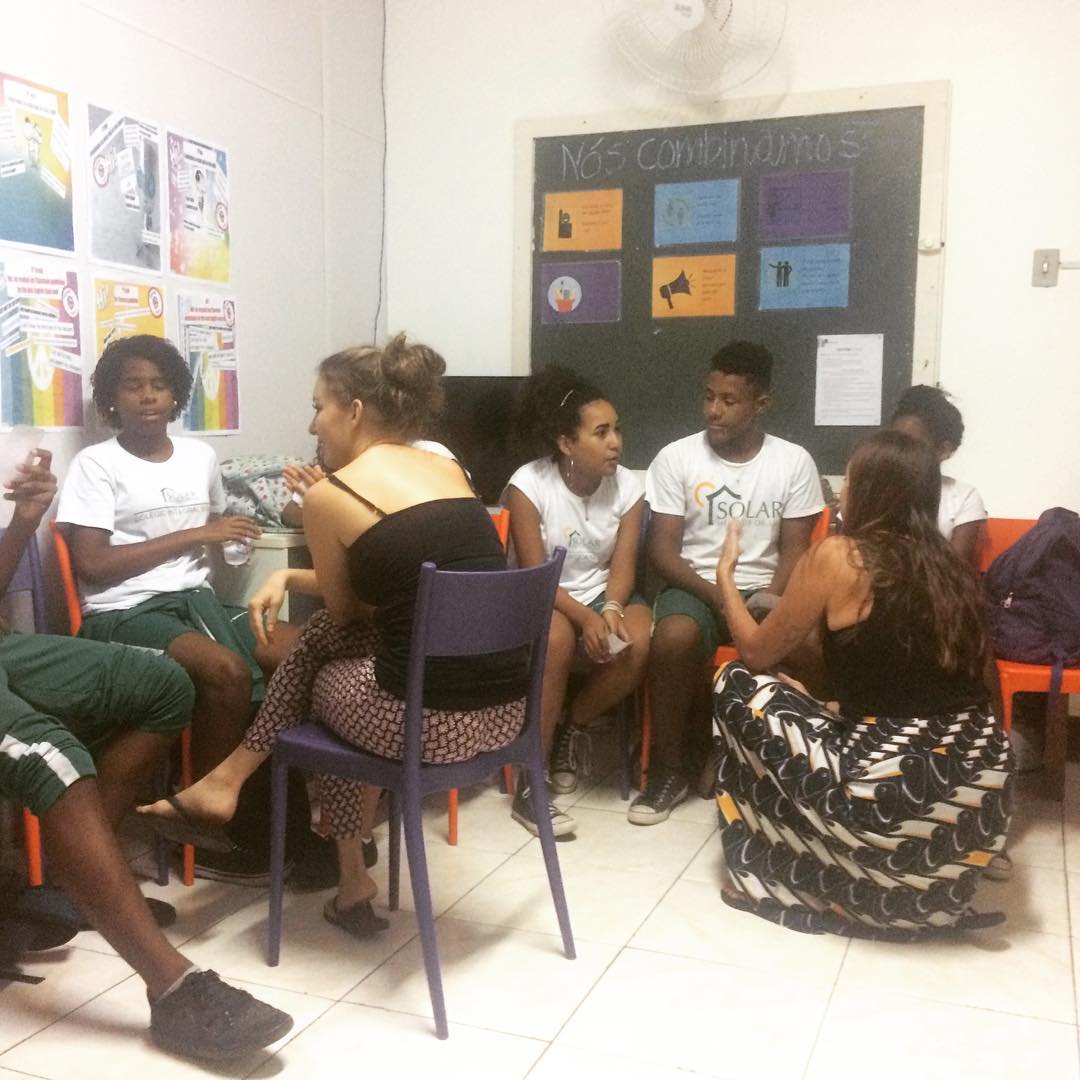
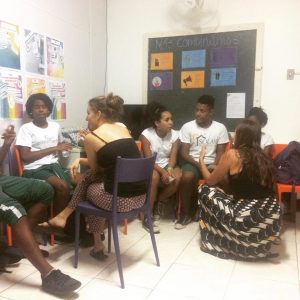 At EduMais, we teach a broad curriculum of English, Sport, Web Design, Art and Entrepreneurship. But for a child to thrive, these subjects are of limited value without the bedrock of social and emotional skills crucial to navigating everyday life. We aim to cultivate the whole child, by keeping a clear focus on integrating social and emotional learning into our academic curriculum.
At EduMais, we teach a broad curriculum of English, Sport, Web Design, Art and Entrepreneurship. But for a child to thrive, these subjects are of limited value without the bedrock of social and emotional skills crucial to navigating everyday life. We aim to cultivate the whole child, by keeping a clear focus on integrating social and emotional learning into our academic curriculum.
Important time
And this couldn’t come at a more important time. The favela community of Pavão-Pavãozinho & Cantagalo needs now more than ever to ensure that the next generation are equipped with the resilience, empathy and self-esteem to be able to face the harsh realities of an ever more violent and unequal Rio de Janeiro. We are certain that social and emotional nurture will be the key to a bright future for the children that we work with.
A lot of thought and planning goes into ensuring that all of our programs are driven by social and emotional learning principles. Here are the five principles we seek to embed:
1. Social interaction
Good communication is key to healthy relationships throughout life. In our English classes, we train the children in ‘active listening’ by having them converse in pairs and repeat back to the group what their partner told them. Our volunteer teachers also aim to model the ‘active listening’ skills that we want to foster in our students, by providing both verbal positive reinforcement and non verbal signs of active listening, such as smiling and eye contact.
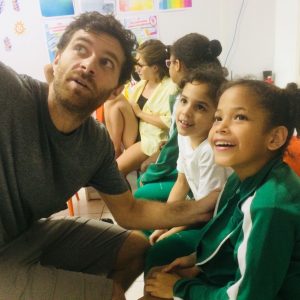
Students develop crucial active listening skills during group work
2. Empathy

Role play helps the children to develop empathy for others
3. Self-control
We deal with a brilliantly lively and verbal bunch of young people! However, working with vulnerable learner groups means that we are often also faced with challenging behavior in the classroom. At the beginning of each lesson, we check in with how each student is feeling using a ‘feelings chart’. Enabling them to identify and recognize their emotions is a first step towards effectively managing them. If a child is feeling overwhelmed, we encourage time out for deep breathing exercises.

Our after-school program is designed to cultivate self-control
4. Self-awareness
Self-awareness is a skill that is fundamental to recognizing our own strengths and weaknesses, as well as understanding how our behavior affects others. Our Entrepreneurship course for teenagers begins with a reflective analysis of how the students view themselves. We provide them with strategies to interrupt negative thought patterns, such as having a mantra. For the younger children, we employ a simpler method of self-reflection – the students rate their behavior after each lesson on a scale of 1-10 and explain why they picked this number. This routine gets the children into the habit of integrating self-awareness into their learning process, as well as taking accountability for their own actions, decisions, and behaviors.
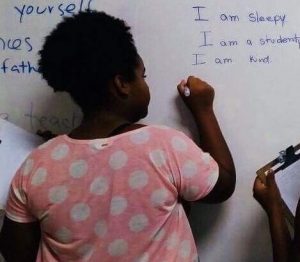
Self-reflective tasks make up an important part of all our programs
5. Resilience
At EduMais we believe that making mistakes is the best way to grow and learn. Therefore we actively encourage our children to slip up… and our volunteer teachers too! With their less-than-perfect Portuguese, our volunteer English teachers demonstrate to the children that taking risks and making mistakes is crucial to learning a new language. Using positive and restorative language, we create a safe and supportive classroom culture in which children are not discouraged by the mistakes they make and praise each other for trying.
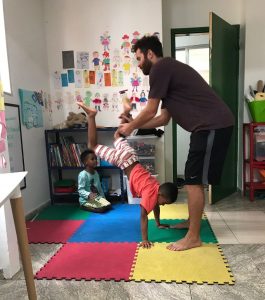
Keep trying! Developing resilience in the after-school program
Sounds great. Does it actually work?
During my 9 months at EduMais, I saw a tangible shift in classroom behavior, as well as better student attitudes towards themselves and their learning. For our most at-risk students, who live in poverty and have suffered traumatic experiences, our program has been an extraordinary tool for repairing emotional damage and building lifetime coping skills.
Students have become more aware of their strengths. They have been empowered by the process of learning how to communicate skilfully – some of our older students have even actively sought out work experience as a result. With each child better equipped with social and emotional capabilities, the future of Brazil looks that little bit brighter.
EduMais offers a unique and groundbreaking learning program that I feel proud and humbled to have been a part of. I left EduMais a much more resilient, empathetic and self-aware person myself – social and emotional learning in the classroom definitely works both ways!
To support the continuation of our innovative learning programs, please consider making a donation.
Author
Eira Fomicheva
EduMais volunteer October 2017 – July 2018

Leave a Comment:
You must be logged in to post a comment.